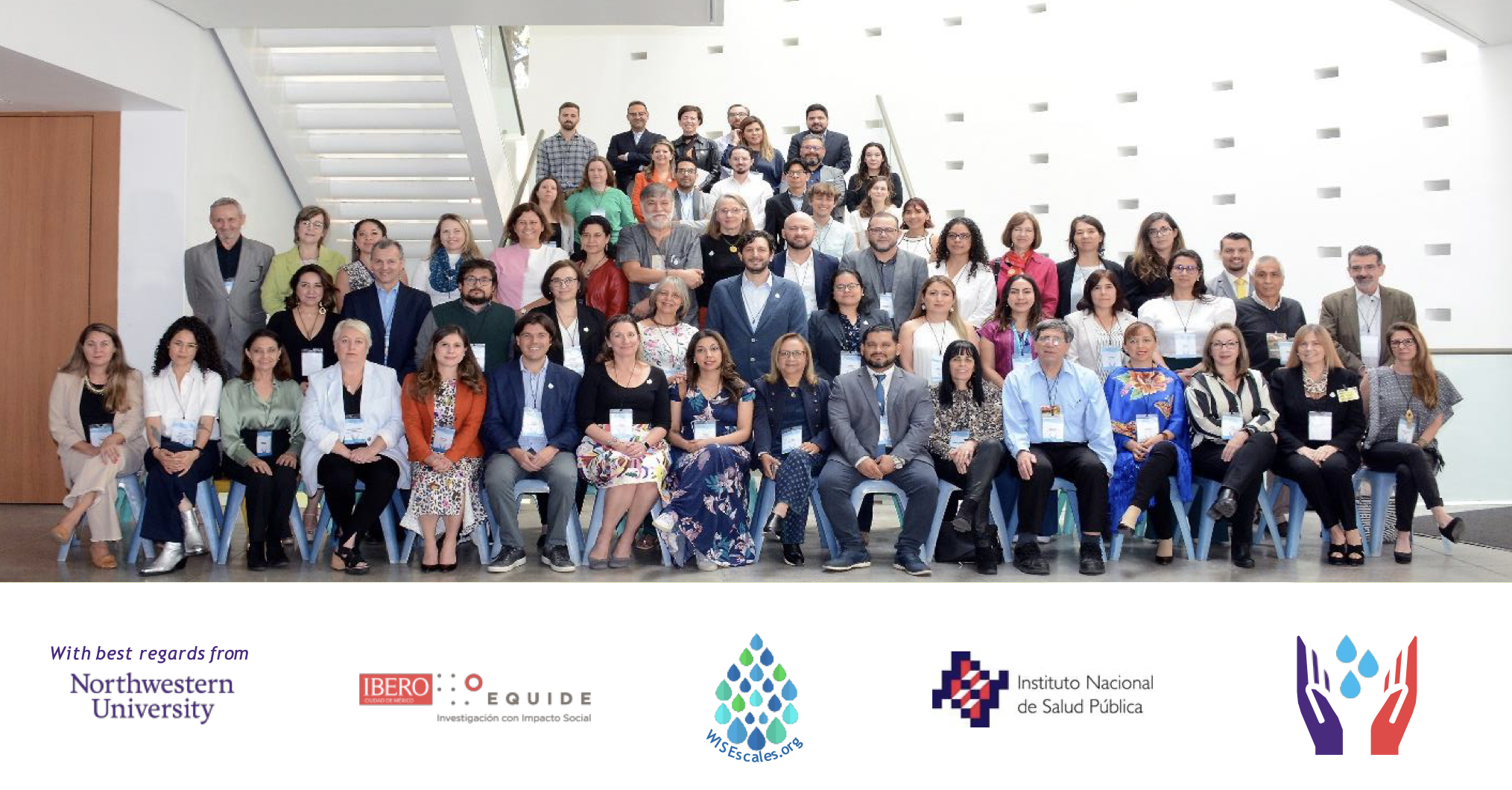Food and Water Insecurity: ‘A Borderless Topic’

More than 60 thought leaders gather in Mexico City to discuss how better measurement can lead to global progress in public health
Access to adequate, safe, and reliable water is closely connected to one’s ability to access and benefit from nutritious foods, yet water and food insecurity are often tracked by different entities, and sometimes are not measured at all. This siloing and lack of information limits our ability to promote water and food security globally.
On April 21 and 22, 2023, Northwestern University hosted a key regional meeting in Mexico City in partnership with Universidad Iberoamericana and Mexico’s National Institute of Public Health to develop a consensus around measurements of food and water insecurity. Northwestern anthropologist Sera Young, a fellow at the University’s Institute for Policy Research, and Pablo Gaitán Rossi, director of Iberoamericana’s Research Institute for Equitable Development (EQUIDE), led the meeting. Both professors belong to the 'Making Water Insecurity Visible' Global Working Group, supported by Northwestern's Buffett Institute for Global Affairs.
Sixty representatives from 40 different government, non-governmental organizations, development banks, and academic institutions throughout Latin America attended, along with officials from United Nations (U.N.) entities, including the United Nations Children’s Fund (UNICEF), the Food and Agriculture Organization (FAO) and the World Food Program (WFP).
“FAO is in solidarity with the development of cross-cultural equivalent measures to important topics, such as food and water insecurity,” said Máximo Torero Cullen, FAO’s chief economist, in opening remarks.
This meeting has significance for improving public health across the globe. A similar meeting in Colombia in 2008, at which regional harmonization of food security measurements occurred, led to food security becoming a key indicator for the U.N.’s Sustainable Development Goal #2: Zero Hunger. Thanks in great part to that meeting, experiences with food insecurity are now measured globally in the Gallup World Poll and are reported annually in the flagship report “State of Food Security and Nutrition in the World,” which is published jointly by five U.N. organizations.
“Secure access to water is essential for health, as well as for the economic and social wellbeing of individuals and families,” said Eduardo César Lazcano Ponce, director of the National Institute of Public Health.
Maria Julia Marinissen, health attaché for the Embassy of the United States in Mexico, called water security, a “borderless topic.”
And Daniela Serrano Campos of Mexico’s National Institute of Statistics and Geography, emphasized that “We don’t need to be convinced of the importance of these tools.”
During the meeting, scholars and officials from 14 countries discussed the history and value of measuring food and water insecurity, and how the Water Insecurity Experiences (WISE) Scales—brief surveys to quantify how often people around the world encounter problems with water—are being implemented successfully throughout Latin America. Young developed the WISE Scales with a group of more than 40 researchers and practitioners.
“It was an honor to have so many of the luminaries who helped make the Food Insecurity Experiences Scales a Sustainable Development Goal in attendance,” Young said. “Their support is accelerating the uptake and value of experiential measures of water insecurity globally.”
Gaitán-Rossi discussed the “palpable excitement” he felt at the meeting. “The many activities that will result from this meeting are sure to help the world to think more carefully about how to measure, and value, one of our most important resources,” he said.
Rafael Pérez-Escamilla from the Yale School of Public Health called on participants to continue with adopting and incorporating the WISE Scales into their national monitoring and surveillance systems as many countries have already done with experience-based food insecurity scales.
“Food systems and water systems are indivisible, and the governance of both can be improved and better coordinated through these cost-effective tracking instruments,” he said.
Hugo Melgar-Quiñonez from McGill University, concluded the meeting with a consensus statement emphasizing the importance of "the use of valid and reliable measurements that support sustainable progress towards the full realization of the human right to water."
